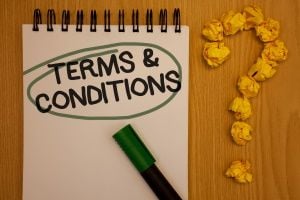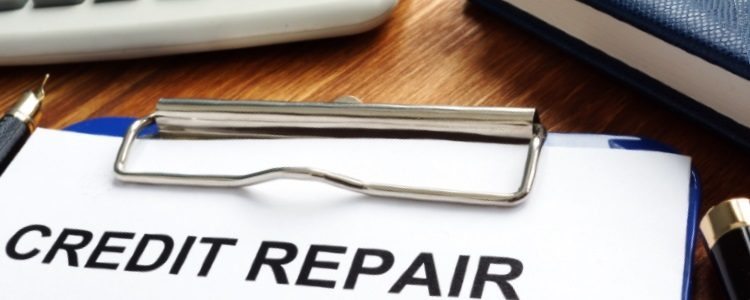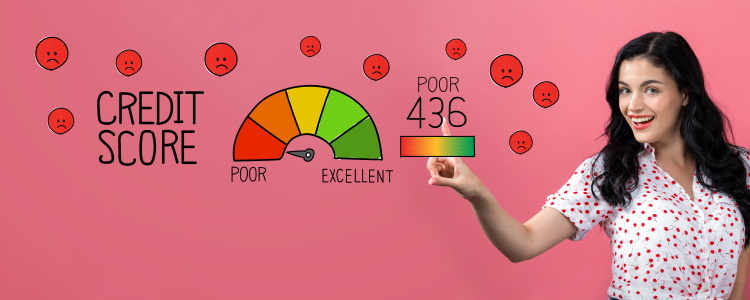Bad credit can stand in the way of a car loan approval, but it doesn’t have to if you’re prepared and you know what lenders are looking for.
Car Loans and Bad Credit
Traditional lenders typically prefer borrowers with a good credit history and a high credit score. If you don’t have either, you may feel like you’re out of luck. But just because your credit score is down doesn’t mean you should be.
There are ways to improve your credit score (especially now) while you’re car shopping and looking for the right lender with the resources you need. It’s never too late to start working on your financial habits, to start saving, or to look for the right lender: all of these things can improve your chances of approval.
Check Your Credit Reports
Now is the time for credit repair! Not simply because you’re reading this and you’re ready for a car, but things have changed due to the coronavirus. Pre-pandemic, you had free access to all of your credit reports once every 12 months via www.annualcreditreport.com. Now, the credit reporting agencies are allowing everyone to view their free reports once a week through April 2021.
Now that you can review your reports weekly, you can monitor your credit reports and credit scores in real time. You can pay off your credit cards, check your reports in a few weeks or so, and see the direct impact of reducing your amounts owed.
To give you a leg up on repairing your credit, here’s a quick rundown on what makes up your FICO score, which is the most commonly used scoring model by lenders:
- Payment history: 35% – Keeps track of how you handle payments on your loans, credit cards, and other accounts.
- Amounts owed: 30% – Considers how much debt you have across all credit accounts, especially focusing on how much you owe on credit card accounts compared to your credit card limits.
- Length of credit history: 15% – How long you’ve had or been using credit.
- Credit mix: 10% – The types of credit you’re using, that fall under two main categories: revolving credit (credit cards) and installment credit (loans).
- New credit: 10% – How many new credit accounts you have.
With this laid out, you can see that payment history is the biggest factor that determines your credit score. Keeping current on your bills and loans is the best thing you can do to improve your credit score. Lenders want to see a borrower with a solid payment history. A missed or late payment remains on your credit reports for up to seven years, and lowers your credit score.
Once you’ve checked your credit reports, you can also review them for any errors or duplicates. If you see an inaccuracy, you can dispute it to the credit reporting agency and work to get it removed. This is part of credit repair. Just know that you’re going to have to prove that the account was “incorrect” with receipts or bank statements, or the error won’t be taken off.
All three credit reports are likely to have some different information, so go through them with a fine-tooth comb. You should know what lenders see before you apply for an auto loan.
Down Payments and Bad Credit Lenders
If your credit score isn’t the best, you can expect most lenders to want a down payment once you’ve been approved for a car loan. It can be tough to save up for a down payment, but if you have a trade-in, it can help meet a down payment requirement.
If you’re working with a bad credit lender, you can expect a minimum down payment requirement of either:
- $1,000 or
- 10% of the vehicle’s selling price
Sometimes, the answer is whichever is less, but it’s going to be next to impossible to get an auto loan without a down payment if you have bad credit. Bad credit car lenders want to see that you’re invested in the loan.
Additionally, while you’re really only required to meet the minimum down payment amount for the lender you’re working with, there's nothing stopping you from putting down more. In fact, if you want a lower monthly car payment, a larger down payment can help with this!
The more you put down, the less you’re financing. The less you finance, the less you pay in interest charges over the loan term and the more you save. With a large down payment, you may also be able to get a shorter loan term which means you could pay off the loan quicker.
No matter your credit situation, it’s almost always recommended that any borrower put some cash down or use a trade-in to help lower the total amount financed to reduce the interest charges.
Working With the Right Lender
 As a credit-challenged borrower, you may find it difficult to get approved by a traditional auto lender. It isn’t impossible, but most banks, credit unions, and automotive captive lenders prefer borrowers with good credit scores.
As a credit-challenged borrower, you may find it difficult to get approved by a traditional auto lender. It isn’t impossible, but most banks, credit unions, and automotive captive lenders prefer borrowers with good credit scores.
To further enhance your chances of getting approved for a car loan, a subprime lender could be your next step in getting financed. Subprime lenders work through a dealer’s special finance department, and they look at more than just your credit score during the financing process.
You’re going to need some items to verify your income, residence, and identity with a subprime lender, such as:
- Computer-generated check stubs
- Utility bill
- Phone bill
- Driver’s license
Your lender may require more or less since all lenders vary in their requirements. However, these are likely what you’re going to need to get financed.
Get Connected to a Subprime Lender
One of the best things you can do to enhance your chances of car loan approval is to plan ahead. Improve your credit score, keep track of your bills and credit reports, and start saving for a down payment. The more you plan ahead, the easier the process will be.
Finding a subprime lender that has the resources to work with bad credit borrowers can also help – so start with us at Auto Credit Express. We have a nationwide network of dealerships that work with subprime lenders. To get connected to a dealer in your area, complete our free auto loan request form.
















